Iran says US policies ‘hindering diplomacy’
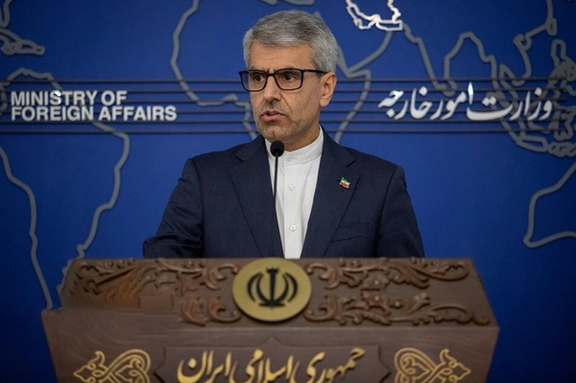
The Iranian foreign ministry complained on Monday that US policy against Iran and its support for its ally Israel are hampering progress on diplomatic fronts and aggravating regional crises.

The Iranian foreign ministry complained on Monday that US policy against Iran and its support for its ally Israel are hampering progress on diplomatic fronts and aggravating regional crises.
Iran’s Foreign Ministry spokesman Esmail Baghaei criticized what he described as Washington's persistent anti-Iran stance. The spokesperson said Monday that the crucial issue remains the administration’s policies.
“The fact is, US hostility against Iran has persisted over the past four years,” he said during his weekly briefing.
The spokesperson conveyed hope that “future American officials would learn from this situation,” and emphasized that “the region and all countries are watching US actions.”
The criticism comes as Iran’s support for proxy groups, including Hezbollah in Lebanon, Shia militias in Iraq, the Houthis in Yemen, and factions in Syria, has heightened regional tensions by enabling it to influence and pressure adversaries like Saudi Arabia, Israel, and the US without direct confrontation.
With increased alignment between Israel and Arab states, these proxies are becoming more active, amplifying the risk of broader conflicts and instability throughout the region.
Assassination attempts
Baghaei also dismissed recent US accusations linking Iran to assassination attempts on US officials. He argued that accusations of Iranian involvement in the assassination plot create unnecessary friction.
“This is a form of planting landmines in the complex relations between Iran and the US,” he said. These comments followed the unsealing of charges against an Afghan national acting on instructions from Iran’s Islamic Revolutionary Guard Corps to assassinate president-elect Donald Trump.
In discussions on international respect, Baghaei said that Iran’s expectations of the US extend beyond rhetoric. “Respect has a specific meaning in international relations. Respect means respecting laws, which is essential for peaceful coexistence between nations,” he added.
On Grossi’s visit
Baghaei’s remarks coincide with IAEA Director General Grossi’s planned visit to Tehran this week.
Discussing Grossi's visit to Tehran, he said: "Consider this trip as part of ongoing interactions and discussions between Iran and the IAEA. As a member of the NPT with a peaceful nuclear program, we have continuous engagements with the agency. These meetings can help improve interactions and cooperation."
Following the US withdrawal from the JCPOA in 2018, Iran resumed high-grade uranium enrichment, accumulating stockpiles that the IAEA estimates could enable nuclear weapons development within weeks if further enriched. Iranian officials insist the program remains peaceful, though they have indicated that external threats could prompt reconsideration of their nuclear doctrine.
As tensions over Iran’s nuclear capabilities grow, the new US administration under President-elect Donald Trump has pledged to prevent Iran from obtaining nuclear weapons.
Iran’s enrichment of uranium to 60%—an approach it claims is for civilian use—remains a point of contention, as experts assert such enrichment levels lack peaceful applications.
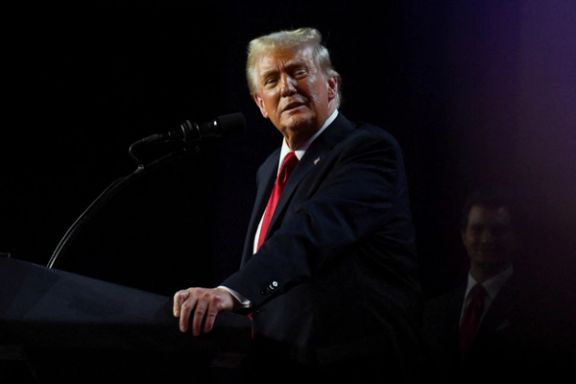
As the world awaits the inauguration of incoming US President Donald Trump, Israelis expect the new administration will be focusing on securing an official peace deal with Saudi Arabia to shore up a barrier against Iran.
However, as Trump prepares to return to the White House with a pledge to "end wars" rather than start them, questions remain about how assertively he will push for ceasefires in Gaza and Lebanon—and how firm his stance will be on Iran.
Moty Cristal, a former Israeli negotiator, told Iran International: “The biggest mistake of those who really don’t understand the war strategy is that they’re falling in the trap of thinking of Trump ending the war.
“Because of Hamas’s goal to sabotage the peace deal with Saudi, the war in Gaza can’t be seen as a stand alone issue. While Trump has already spoken of a ceasefire option in Lebanon, Gaza has got to be seen through a regional view.”
He said that the real goal of Hamas on October 7 had two objectives, to free Palestinian prisoners and to derail the Israeli-Saudi-US deal which had been started by Trump with the 2020 Abraham Accords, securing peace between Israel and Arab States such as the UAE and Bahrain.
In January 2023, Saudi Arabia's ambassador to the UK, Prince Khalid bin Bandar, told the BBC the pact was “close”, before the deadly attacks by Iran-backed Hamas on October 7. Since then, the country has remained firm on its demands to see the creation of a Palestinian state before making peace official with Israel.
“We all understand that Trump will take over the Saudi initiative and the wreck of the Biden administration and resume it, so Gaza should be seen through the regional perspective. It’s not just the US-Saudi defense treaty that is on the table now,” Cristal explained.
While the first step to regional stability is ending the war in Gaza, Cristal said that Israeli Prime Minister Benjamin Netanyahu, who wants to “clean his October 7 stain and reframe his legacy”, must look at Gaza as part of a regional pact.
“Both Bibi [Netanyahu] and Trump want this to be their legacy,” Cristal added. “Trump’s first move towards stability in the region will be this, at a lower price, without US boots on the ground.”
An Israeli official familiar with the matter also spoke to Iran International, on condition of anonymity due to the sensitive topic. “Everyone is still happy that Trump has been elected but they know he will put pressure on Israel to end the war,” the source said. “They also feel he will lift the pressure on Iran, not increase it. Netanyahu will not be given free reins on Iran. Trump wants peace and business, so he won’t allow anything to harm the oil fields in Iran.”
An Israeli intelligence source also speaking on condition of anonymity, told Iran International the outcome is going to depend on who makes up the incoming administration.
“It depends more on Trump’s advisors and who he is going to surround himself with more than anything else so things are still uncertain as to whether he would be forcing a ceasefire or taking a tougher stance on Iran,” he said.
Last year, three years after the signing of the 2020 Abraham Accords, members of Congress were vocal in their support for adding Saudi to the initiative as US-Israel-Saudi talks continued behind the scenes.
At an event before the outbreak of the Gaza war at the US Capitol hosted by the N7 Initiative, a collaboration between the Atlantic Council and the Jeffrey M. Talpins Foundation, Terry Wolff of the White House National Security Council confirmed the deal was still under discussion as the Biden administration continued the legacy of Trump's Arab-Israeli peace accords.
Republican Kathy Manning (D-NC) said Saudi joining a pact would “help create a bulwark against Iran,” the oil-rich state a critical piece of the puzzle.
But even since the war, the prospect appears to be alive, in spite of Saudi’s stance that peace with Israel must depend on the creation of a Palestinian state. Behind closed doors, the talks between the two countries are very much still underway.
Kirsten Fontenrose, a non-resident fellow with the Atlantic Council, said: “Quiet cooperation between Israel and Saudi Arabia has neither frozen nor slowed one year after the Hamas attack on Israel … Saudi Arabia and Israel proceed discreetly at pace with mind-melds in areas both hope will surge their economies, deter their enemies and prevent the resurgence or emergence of new ones.“
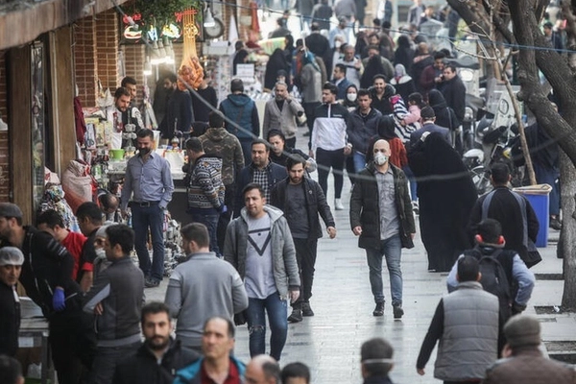
Iran's population looks set to halve by the end of the century as birth rates continue to fall in spite of efforts by the government to incentivize larger families.
Addressing rapid demographic shifts, Deputy Health Minister Alireza Raisi warned on Sunday that declining birth rates could lead to a significantly smaller, aging population, with projections indicating a sharp decline. By 2101, the population could shrink by as much as 50%, with nearly half of the country potentially classified as elderly.
Raisi said that Iran has experienced one of the world’s fastest fertility declines, dropping from an average of six children per family to fewer than three within just a decade. If the trend continues, he explained, the country’s total population could decrease to around 42 million by the end of the century—a drastic change from the current level, which is over 87 million.

“This means half of Iran’s population will be elderly,” Raisi added, urging awareness of the potential social and economic consequences that such a shift may entail.
The issue of Iran’s aging population has drawn concern among officials and demographic experts alike. Hesameddin Allameh, former head of Iran's National Elderly Council, recently described a looming demographic pitfall, as nearly 10 million Iranians are now classified as elderly.
He said that today, the provinces of Gilan and Mazandaran have the oldest populations in Iran, while Sistan-Baluchestan and Hormozgan remaining the youngest, highlighting disparities across the country.
Despite calls from senior leaders, including Supreme Leader Ali Khamenei, for families to increase the national birth rate, these efforts have shown limited success. In spite of banning legal abortion, and offering benefits such as free land and insurance coverage, the government has failed to stem the tide.
Data from the National Organization for Civil Registration indicated a decrease of 17,000 births in 2023 compared to the previous year, suggesting that the government’s pro-natal policies have struggled to gain traction.
The main factor driving this decline is the economic crisis which has seen over a third of Iranians now living below the poverty line, with inflation staying above 40% for five consecutive years. Other factors include shifting social norms, and urban lifestyle changes, which are increasingly affecting family planning choices.
In addition to Iran’s internal population shifts, Raisi raised concerns about the nation’s demographics relative to its neighbors. While Iran looks likely to soon face a population decline, nearby countries are projected to experience significant population growth.
This disparity, he argued, could have serious implications for Iran's economic and geopolitical standing in the region if current trends persist.
The demographic challenge is contrasted by the country’s annual death rate, currently around 450,000, and an annual birth rate of roughly one million. With a net population increase of approximately 550,000 people each year, the nation is seeing its growth rate decline.
Raisi cautioned that, without meaningful policy changes, Iran could face an existential threat. “If the situation persists, in 100 years, there will be no country called Iran,” he stated, calling for unified action among government officials to confront the issue.
Shahla Kazemipour, a demographer and university professor, said the birth rate decline is nationwide, indicating that the trend will likely continue without targeted intervention. Kazemipour added that Iran’s aging population, which is becoming an inevitable reality, will pose significant economic and social challenges in the coming decades, on top of the country's crisis amid global sanctions.

Currently, the country’s elderly population stands at around seven million, approximately 8% of Iran’s total population, according to Ahmad Moazen Zadeh, head of the Iranian Physiotherapy Association. With the projected growth of this demographic, health and social services are preparing for increased demand, which will require extensive planning and resources to manage.
As Iran contends with the realities of an aging society and the potential for long-term population decline, the future stability of its workforce, economic resilience, and healthcare infrastructure may depend on policy reforms designed to encourage sustainable demographic growth.
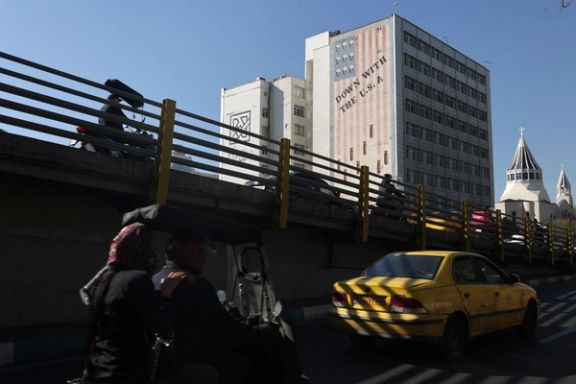
Many experts and political commentators speaking to Iran's state-controlled media agree that Tehran now faces a United States with greater political coherence after Donald Trump’s election.
Abolfazl Fateh, former head of the state-owned Iranian Students News Agency (ISNA) and a prominent reformist figure in Iran, echoed this sentiment in a commentary for Etemad newspaper. He argued that Trump’s victory in the US election is likely to have far-reaching consequences for his opponents and increase concerns in many countries.
"Iran will need to come up with a new strategy as Trump, Netanyahu and their European and regional allies are likely to form a unified front," Fateh said, adding that "the Islamic Republic needs new plans and a new strategy to protect Iran's interests for the next two months before Trump takes office and for the next four years when he will be in the White House."
Fateh also argued that Trump is unlikely to spare his opponents and critics, both in the US and abroad, who may be entering a turbulent period. He carefully hinted without mentioning the Iranian government that some may need to reassess their positions on human rights policies.
Fateh further suggested that Trump’s victory could become the catalyst for a global political and military alliance among right-wing forces. He argued that this marks a new phase of globalization, with influential super-capitalists like Elon Musk ushering in an era focused on the digital economy, while Trump steers the direction of global politics and economics.
Fateh warned that Iran should be vigilant for a potential alliance between Trump and Arab and European states that have previously challenged Iran’s sovereignty over three Persian Gulf islands. He cautioned Iranian leaders, noting that Trump’s stance on Iran is rooted in a complex history.
In contrast, in an article titled "Trump's Comeback and Iran's Strategy," Etemad columnist Ali Ahangar commended Iranian officials for remaining unfazed by Trump’s return. He described Iran’s approach to the United States as “forward-looking.”
In a somewhat unusual argument, Ahangar suggested that Iran effectively blocked the United States from rejoining the 2015 nuclear deal during Biden’s administration, asserting that Iranian leaders had anticipated the November 5, 2024, election outcome. As a result, Iran maintained its uranium enrichment capabilities, while avoiding theJCPOA agreements automatic trigger mechanism for more sanctions.
Another indication that Iran was not caught off guard by Trump’s victory, Ahangar argued, is its leadership’s support for the rise of a "pacifist and moderate government" under Masoud Pezeshkian, who advocates for "negotiation and reconciliation." This move, he said, signaled to the world that Iran is forward-looking and open to dialogue.
Meanwhile, he emphasized that as the Middle East engages in a high-stakes struggle, it is Iran that plays the defining role. “Trump now has two options: pursue a dignified negotiation with a government seeking reconciliation or confront a Middle East racing at full speed toward nuclear armament.” Ahangar added, “Iran’s choice is one of negotiation while maintaining its dignity. Now it’s the United States’ turn to decide its path forward.”
In a separate commentary, foreign policy analyst Abdolreza Faraji-Rad reviewed Trump’s past relations with Iran, particularly his decision to withdraw from the nuclear deal, and concluded that Trump’s approach toward Iran will partly hinge on Iran’s strategy with the incoming US administration.
Faraji-Rad noted that Trump sought to initiate negotiations with Iran near the end of his term in 2020, but Iran was unprepared, especially following the killing of IRGC Quds Force Commander Qasem Soleimani. “Now, we have to wait and see how President Pezeshkian will approach the possibility of negotiations with Trump,” he wrote.
He added, “Pezeshkian has the potential to advance negotiations with Trump, but he must adapt his tactics to achieve relief from sanctions; otherwise, tensions will escalate. If Trump concludes that Iran is unwilling to negotiate, he will undoubtedly revert to his maximum pressure policy.”
However, Iran watchers understand that Pezeshkian’s actions ultimately depend on Supreme Leader Khamenei’s directives. Persuading Khamenei to endorse meaningful negotiations is likely more crucial than the specific approach Pezeshkian takes to move discussions forward.
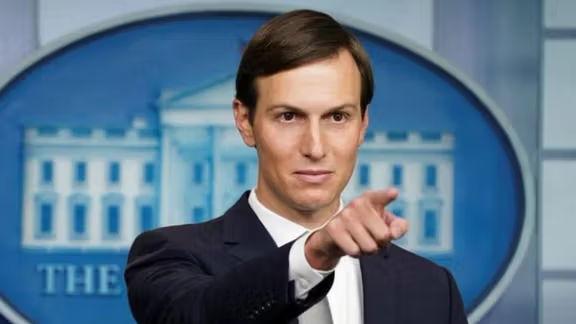
Donald Trump’s second presidency could accomplish peace in the Middle East and his son-in-law Jared Kushner is the ticket, one American academic and Trump insider told Iran International.
Speaking on the Eye for Iran podcast, Jeff Sonnenfeld, who has known the president-elect for decades, assisted Kushner in the 2019 Peace through Prosperity conference in Bahrain, which outlined the Abraham Accords.
The US mediated the agreements between the United Arab Emirates, Bahrain, Morocco and Israel, with the intent of normalizing ties between the Arab states and Israel. Since its inception in 2020, the UAE and Israel, for example have deepened ties across economic and defense domains.
Sonnenfeld told Iran International that Trump often rules with a divide and conquer method and that the Abraham Accords was an anomaly.
The reason for this: Jared Kushner.
“This was the anomaly where I think it's Jared's brilliance that he yielded to weaving it together,” said Sonnenfeld on Eye for Iran.
Sonnenfeld, an associate dean at Yale University, wrote critiques of Trump’s show the Apprentice. Him and Trump formed a friendship after the then- business mogul complained about the academic’s harsh reviews of his show and business practices.
Flashforward to Trump’s first presidency and Sonnenfeld was asked by the President to join his son-in-law in a summit that led to the monumental agreements normalizing relations between Israel and some Arab countries.
An extension of the Abraham Accords could be on the horizon with a second Trump presidency if Kushner gets back into his role.
“If he [Kushner] gets drafted back into the middle East, his currency there is still fantastic. And he could, he could regenerate a lot of this.”
According to an Israeli publication, Israel Hayom, Kushner has returned to assist the president-elect in preparing for the incoming administration, citing a source close to the matter.
It is expected that Trump will have a tougher stance on Iran than his predecessor Joe Biden.
Oil sales are a critical source of funding for Iran, representing up to 70 percent of government revenues.
During his first presidency, Trump imposed sanctions on Iran's oil exports, which reduced the volume of Iranian oil exports by 95 percent, cutting Iranian oil revenues by about $50 billion.
Sonnenfeld believes Trump would go after Iranian revenues by re-enforcing oil sanctions. He said during the first Trump administration, Sonnenfeld said the lost oil supply was replaced by increased production from other Persian Gulf countries like Saudi Arabia that led to the fall of global oil prices.
During the Biden administration, enforcement of these sanctions lapsed. According to the Energy Information Agency (EIA), which published a report about Iran’s petroleum exports, Iran sold $144 billion in the first three years of the Biden administration. That's$100 billion more than what Tehran exported in the last two years of the Trump administration when the oil sanctions were in effect.
Then there’s the nuclear issue.
Donald Trump has repeatedly said during recent interviews and the campaign trail that he would not allow Iran to be a nuclear power. He characterized a nuclear Iran as a threat to Israel and regional security in the Middle East, and he is poised to re-prioritize Iranian nuclear disarmament.
Iran is closer to a nuclear bomb. The International Atomic Energy Agency (IAEA) has said that Iran's estimated stockpile of enriched uranium had reached more than 30 times the limit set out in the 2015 nuclear agreement between Tehran and world powers. Iran maintains that their nuclear ambitions are peaceful.
One new factor for Trump this time around is that Israel has considerably weakened Iran’s deterrence by crushing both Hamas and Hezbollah. That has created an environment where the Islamic Republic is in a more vulnerable position. But none of this means war, said Sonnenfeld.
In Trump’s victory speech, he said: “I'm not going to start a war. I'm going to stop wars.”
Sonnenfeld predicts a more peaceful Mideast under Trump's leadership with the influence and guidance of his son-in-law. He also doesn’t foresee war as the means to get there, in fact, an extension of the Abraham Accords and maximum pressure is what he views as the path going forward.
You can watch the full episode of Eye for Iran featuring Jeff Sonnenfeld on YouTube, or listen on Spotify, Castbox, Apple or Amazon.

Retired educators from provinces nationwide gathered outside Tehran’s Ministry of Education on Sunday, protesting unpaid end-of-service compensation and demanding action on delayed pensions.
These retirees, who include those who traveled from cities across Iran, say they have yet to receive 60 percent of their promised retirement benefits after 30 years of teaching.

During the demonstration, they chanted slogans such as “Incompetent minister, resign, resign,” “A nation has never seen such injustice,” “One fewer embezzlement, and our problem is solved,” and “Teacher, rise up to end discrimination.”
Images circulating on social media show that some retirees had slept in Tehran’s parks the night before, braving the cold to ensure they could attend the protest.
Reports from retiree and teacher networks indicate that the protest will continue on Monday, November 11, outside the Ministry of Education building in Tehran.
Last month the minister of education, Alireza Kazemi said that 50 percent of retiree payments would be allocated in the budget for the current and next fiscal years to address payment delays. However, these retired educators, some of whom have been waiting over a year post-retirement, have yet to receive their end-of-service bonuses.
This protest follows an earlier demonstration on October 22, when retirees gathered outside Tehran’s Social Security Organization.
Despite promises from the authorities, the retirees say that delays in their unpaid wages are eroding the value of their money, ILNA reported on Sunday.
Amid rising tensions with Israel, the Iranian rial last week plunged to a historic low of less than 1/10,000th of its pre-Islamic Republic value, trading at over 705,000 rials to the US dollar in Iran's free market
Amid soaring inflation over 40%, the rial’s continued decline has deepened Iran's economic crisis, leaving retirees struggling as their unpaid pensions lose value daily.
London-based Iranian labor rights activist Sattar Rahmani says the protests were entirely self-organized, with retirees independently mobilizing across cities in Iran, gathering outside the ministry in Tehran to once again voice their long-standing demands.
He sharply criticized Masoud Pezeshkian’s administration’s budget for next year as “entirely military-oriented,” emphasizing that funds have been allocated to security forces while essential sectors like education are neglected.
Pezeshkian unveiled next year’s budget recently, allocating nearly 20% of Iran’s oil export revenue—estimated to exceed $10 billion—exclusively to the Revolutionary Guard.
“There should be a budget set aside to ensure that the needs of education are met, so that teachers can be supported and don’t end up living below the poverty line,” Rahmani said in an interview with Iran International. He argued that Pezeshkian's administration is continuing the militaristic approach of Raisi’s government, leaving crucial societal needs, like education, unmet.